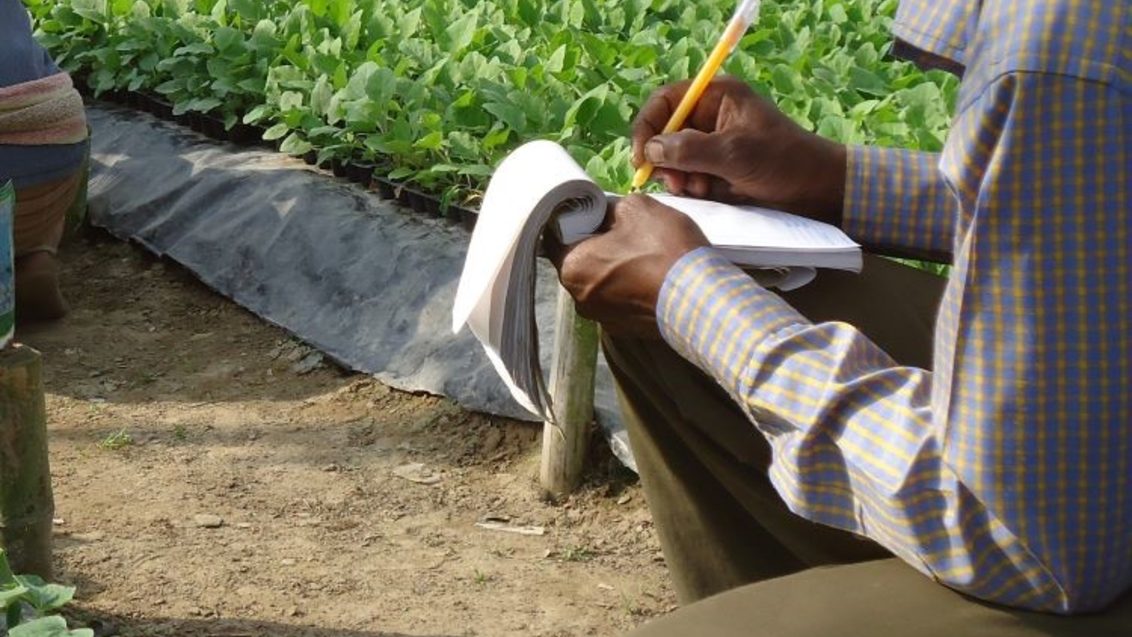Finding the «write» note – with farmers or a boyband

How much difference are we making? Finding that out takes several forms. Our recent Performance Report gives a broad international view. Local perspectives include those on our Reports page. We are also continuing our deep dives on individual topics. Last year these included our Farmers’ Hubs in Bangladesh; the latest edition examines Pancer Tani, their equivalent in Indonesia*.
These two reports are based on phone interviews with smallholders. What’s it like to have these conversations? What are the do’s and don’ts? High points and low? We interviewed the interviewers. The answers come from a 60 Decibels researcher in Bangladesh (B) and Indonesia (I). They are Sutapa Borna and Merarie Zahra.
What key skills and qualities do you need for this kind of interview?
I: Patience & flexibility! Trying to reach farmers, you have to call several times. That took longer than I expected. On many days, I ended up with no interviews. When I finally caught up with people willing to do an interview, it was a challenge to explain the questions clearly and ensure I was getting accurate responses. Flexibility was essential. With each call, I learned to adjust to interviewees’ individual cultural and educational backgrounds and use the right words.
B: Listening closely, assessing the respondent’s mood, and making him or her feel comfortable is very important. If a farmer wants to stop, you have to respect that. The interviewer should never try to dominate the conversation. And of course, it’s essential to record the answers accurately.
What are the most enjoyable aspects of such interviews?
B: Connecting with different people across the country. It feels really good if respondents sound happy, excited or even laugh when giving their views. Then I feel they’ve enjoyed talking with me.
I: Hearing how farmers’ lives have improved thanks to certain products and services. It can be an effort to get them to share concrete examples. But it’s worth it: you hear some amazing stories of how their lives have changed and their communities have developed.
What are the hardest aspects?
I: Getting the right person on the phone can be a challenge. Sometimes the number’s out of use, or somebody immediately hangs up, or they answer and then don’t want to participate. That can be discouraging. But you have to keep trying! You must then watch your style carefully. The key is to sound neither too formal nor too casual. Engaging in interviews is only possible if you first gain trust.
B: Rating questions confuse some respondents. You have to make an extra effort to explain the scale of possible answers.
What is your special memory of this Syngenta Foundation research project?
B: I learned so much about farming, smallholders’ livelihoods, struggles, and successes! I was pleased to hear how Farmers’ Hubs seedlings, for example, improve their lives. It was especially good to know that along with men, women are also coming forward for better farming and higher yields.
I: One particular case sticks with me. Two respondents shared a phone number. The first one also tried to answer for the other. He said they basically farmed the same land, so their stories would be pretty similar. However, I insisted on a separate interview with the other farmer, and he had a completely different story and experience! They were in the same room. So I imagine it must have been pretty awkward for the first farmer to realize that his “assumptions” weren’t that spot on. That was a funny yet precious experience. It reminded me to always get the answer directly from the source.
If you could interview one celebrity worldwide, whom would you choose and why?
I: Can I have more than one? Then it would be BTS, the world’s biggest boyband! As well as being part of their fandom called ARMY, I admire them as hard-working individuals with determination and strong hearts. Sadly, in many of their interviews, the questions are as shallow as a shower puddle. I would ask them things that are fun but also enable them to share their most vulnerable stories. To get a real fan to interview her idols might sound like a bad idea, but I think it’s a great one! No one knows their stories like the fans do or understands their inside jokes and personalities so well. You need all that to make them comfortable and dig deep.
*Here’s more information about YASI, our new organization in Indonesia.
